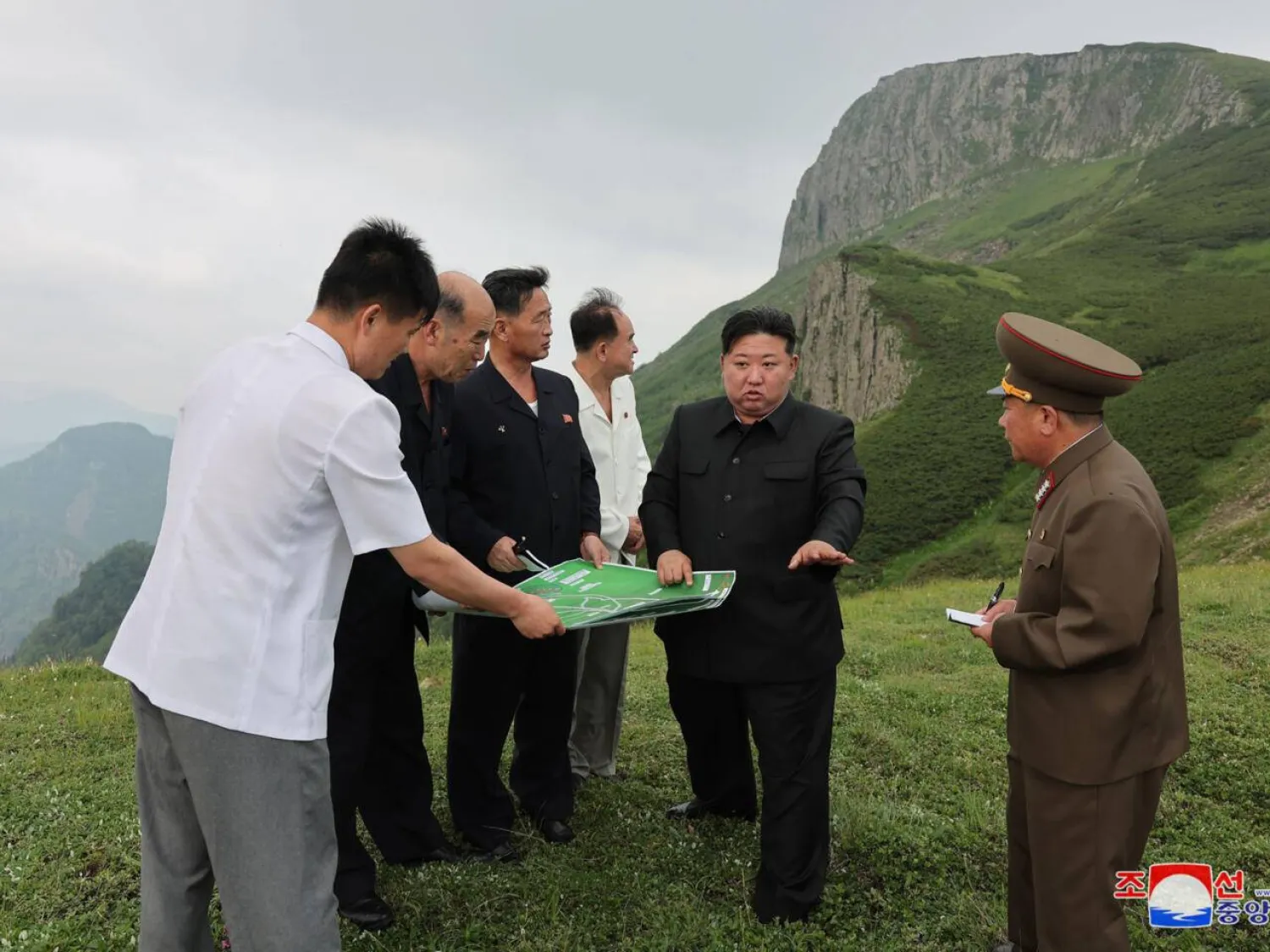A Beijing-based North Korea tour operator expressed hopes of fresh business on Thursday following an unexpected announcement that the country would reopen to foreign tourists this winter.
Koryo Tours said on Wednesday they had received notice from isolated North Korea that tourism to the northeastern city of Samjiyon would resume in December after nearly five years of Covid-triggered closure.
"Our initial reaction is positive of course. It's been a long wait," Koryo Tours general manager Simon Cockerell told AFP on Thursday.
"Demand has been strong throughout the closure so I would expect a decent rebound (in business)," he said, adding "there are a lot of folks who have been anxious and keen" to visit nuclear-armed North Korea since the pandemic.
KTG Tours, also based in China, said on its Facebook page Wednesday that it had been told "tourists will be able to go to Samjiyon (Mt. Paektu area) this winter".
"Exact dates to be confirmed. So far just Samjiyon has been officially confirmed but we think that Pyongyang and other places will open too!" it said.
Samjiyon, near North Korea's mountainous northern border with China, is a gateway city to Mount Paektu, where official narratives say the late supreme leader Kim Jong Il was born.
His son and successor, Kim Jong Un, has poured huge resources into developing the area, with the vast project including new apartments, hotels and a ski resort.
North Korean state media had not mentioned the reopening of the border by mid-afternoon on Thursday.
'Idiosyncratic'
Cockerell told AFP that opening up to tourists in the bitterly cold, remote area in December was unexpected but "a positive step for sure".
"Doing it in the far north in the middle of winter is idiosyncratic, but the DPRK is nothing if not an idiosyncratic place," he said, using the official acronym for North Korea.
"For our company, it hopefully means we can start to fulfil our mandate again which is to offer as many people the chance to go there as possible, to increase engagement and interaction."
North Korea sealed off its borders in early 2020 to protect itself from Covid-19, with even its own nationals prevented from entering for years.
But signs of reopening began in the second half of 2023, with the resumption of international flights allowing stranded nationals to finally return home.
A group of Russian tourists visited in February 2024, at a time when ties between Moscow and Pyongyang were growing closer.
Tourism to the North was limited before the pandemic, with tour companies saying around 5,000 Western tourists visited each year.
US citizens made up about 20 percent of the market before Washington banned travel following the imprisonment and subsequent death of American student Otto Warmbier.
"I'd caution against over-interpreting this opening," Cockerell said. "It's not necessarily a message to the world or anything like that. It's just a slow and small initial opening to restabilize an industry that existed for decades previously."
Koryo Tours warned on its website that, after a hiatus of almost five years, the early days of the tourism restart may not go smoothly.
"For those hoping to visit on one of the sooner tours, we would like to emphasize that things may be a little more chaotic than usual," it said.
But Cockerell remains optimistic. "This is finally a positive piece of news, hopefully to be followed by more of the same," he said.
North Korea Tour Operators Hopeful Ahead of Country's Reopening

Kim Jong Un (C) has poured huge resources into developing the Samjiyon area, with the vast project including new apartments, hotels and a ski resort. STR / KCNA VIA KNS/AFP

North Korea Tour Operators Hopeful Ahead of Country's Reopening

Kim Jong Un (C) has poured huge resources into developing the Samjiyon area, with the vast project including new apartments, hotels and a ski resort. STR / KCNA VIA KNS/AFP
لم تشترك بعد
انشئ حساباً خاصاً بك لتحصل على أخبار مخصصة لك ولتتمتع بخاصية حفظ المقالات وتتلقى نشراتنا البريدية المتنوعة







